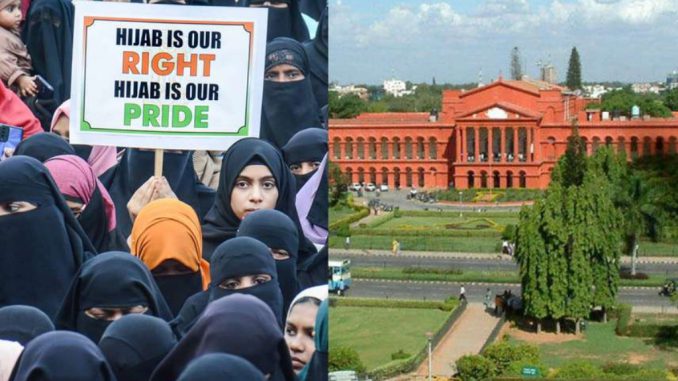
The hijab is not an integral religious practice, according to the Karnataka High Court, which today upheld the restriction on hijab in schools, which was questioned by several Muslim students in a controversy that arose at a school last year and expanded to numerous districts.
What is the Court’s Verdict?
According to “Times of India”, Three judges refused to overturn the state government’s prohibition and dismissed student appeals, saying, “We are of the considered conclusion that wearing of hijab by Muslim women does not form a component of vital religious practise in the Islamic faith.” The Karnataka government issued an order on February 5 restricting certain kinds of religious clothing (hijab) from schools and universities that “disturb equality, integrity, and public order.” “Students cannot object to the requirement of a school uniform because it is a fair regulation. The government has the power to release a directive “According to the order of the High Court.
What was the appeal of students?
Abhishek Janardhan, an attorney for the students who had approached the court, said to reporters in response to the order: “We don’t want to make any hasty decisions. We’ll sit down alongside our seniors and make a decision regarding our next steps.” Last month, the Karnataka High Court momentarily outlawed religious clothing, such as hijab and saffron scarves, when the matter erupted into riots and a brawl between various student groups. Wearing the headscarf is a constitutional right granted by India’s constitution and an integral habit, according to the petitioners, who include a dozen Muslim students.
Students at a school in Udupi claimed that for the first time in years, they had been forbidden to enter class wearing headscarves, igniting a debate about the hijab. As the limitations were imposed on more universities, saffron-clad students launched counter-protests.
The state’s ruling BJP has disputed charges that the hijab ban in government colleges is aimed at Muslim students. Party officials, on the other hand, have repeatedly stated that religious symbolism should not be permitted in educational facilities. “I am pleased with the court’s ruling. I ask everyone to move on with the state and country and to avoid conflict by obeying the High Court ruling.








